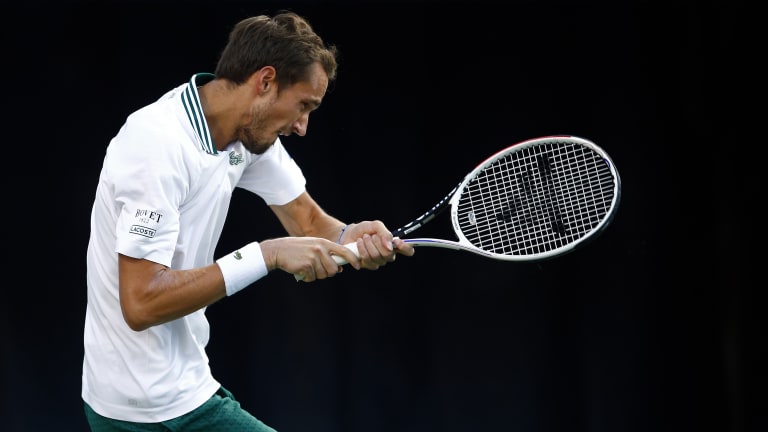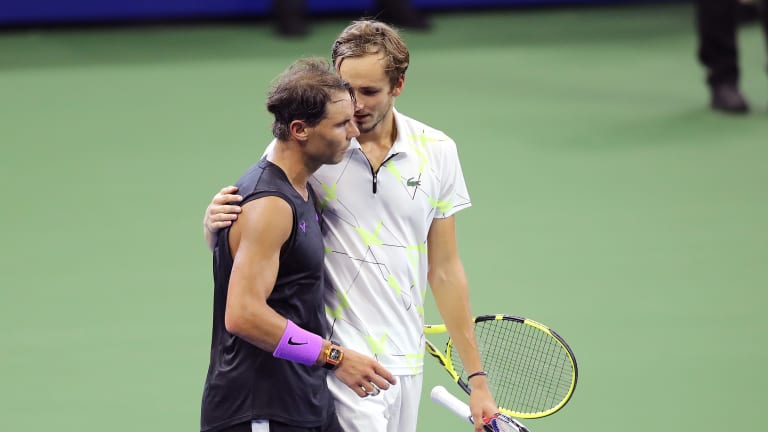National Bank Open
Daniil Medvedev is a contender seeking to become champion
By Aug 13, 2021National Bank Open
Steady vs. surprises: Previewing the 2024 singles finals in Montreal and Toronto
By Aug 12, 2024National Bank Open
Defending Montreal champion Jannik Sinner beats Borna Coric in return from tonsillitis
By Aug 09, 2024National Bank Open
National Bank Open “redefines” with 12-day tournament in Montréal, Toronto starting in 2025
By Jun 12, 2024National Bank Open
Jannik Sinner beats Alex de Minaur in Toronto final for first ATP Masters 1000 title
By Aug 13, 2023National Bank Open
Alex de Minaur, Jannik Sinner advance to National Bank Open final in Toronto
By Aug 13, 2023National Bank Open
Tommy Paul beats top-ranked Carlos Alcaraz in Toronto quarterfinals
By Aug 12, 2023National Bank Open
Tommy Paul stuns Carlos Alcaraz to become first American man to beat a No. 1 since 2017
By Aug 12, 2023National Bank Open
Alex de Minaur eyes "huge opportunity" with Davidovich Fokina after ousting Medvedev in Toronto
By Aug 11, 2023National Bank Open
Carlos Alcaraz recovers late to hold off Hubert Hurkacz after seeing Toronto lead evaporate
By Aug 11, 2023National Bank Open
Daniil Medvedev is a contender seeking to become champion
The Russian will likely enter the US Open as the second favorite behind Novak Djokovic, who will make his 2021 North American hardcourt debut in Flushing Meadows.
Published Aug 13, 2021
Advertising

Medvedev is among those rare stylists who can make something apparently ugly turn out beautiful.
© 2021 Getty Images
Advertising

Medvedev erased a two set deficit in the 2019 US Open final only to end up losing, 6-4 in the fifth
© Getty Images